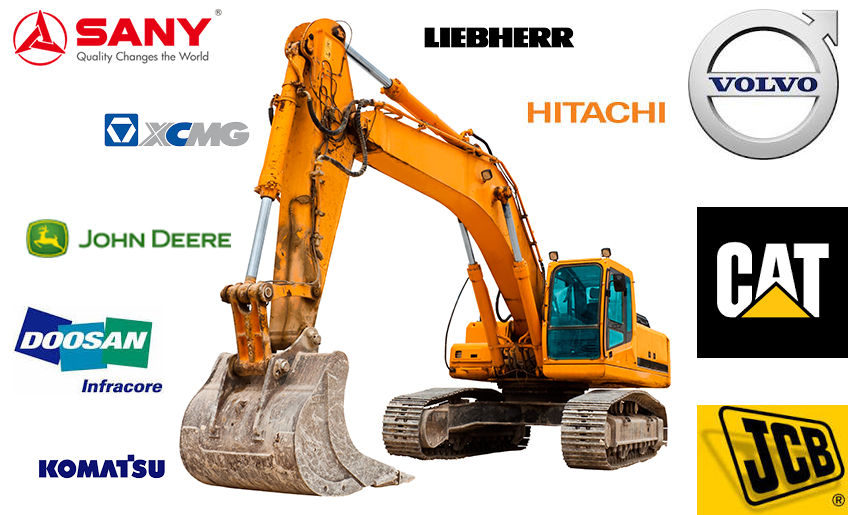Find Trusted Construction Equipment Rentals: Explore Our Dozer Rental and Scissor Lift Rental Options
Find Trusted Construction Equipment Rentals: Explore Our Dozer Rental and Scissor Lift Rental Options
Blog Article
Essential Tips for Taking Care Of Hefty Equipment Rental Contracts and Logistics Effectively
Properly taking care of heavy devices rental arrangements and logistics is essential for the success of any type of task that relies on these sources. An extensive understanding of rental terms, combined with precise assessment of tools demands, lays the foundation for positive negotiations.
Understand Rental Terms
Recognizing rental terms is crucial for successful heavy devices administration. The rental duration defines the duration for which the tools is leased, affecting budgeting and task timelines.
Furthermore, it is essential to understand the maintenance obligations described in the agreement. Generally, rental companies preserve the equipment, but recognizing who is accountable for regular checks and repairs is vital to avoid operational disruptions. In addition, terms may include conditions concerning obligation for damages or theft, which can have significant monetary ramifications if not appropriately understood.

Assess Devices Requirements
Assessing devices demands is an important action for any type of project supervisor aiming to enhance source allowance and enhance operational efficiency. This procedure includes a complete assessment of the project needs, consisting of certain tasks, timelines, and the sort of devices required to accomplish preferred end results.
Begin by identifying the scope of the project and the jobs that will be performed. Take into consideration factors such as the terrain, the range of procedures, and any type of prospective difficulties that could affect devices option. Involving with group members who will operate the equipment can provide beneficial insights right into practical requirements and choices.

Following, evaluate the ability and capacities of readily available equipment alternatives. It is vital to match the ideal devices to the tasks available, making certain that it can manage the anticipated work without compromising safety or efficiency.
In addition, consider the rental period and frequency of use. Recognizing these elements can assist establish whether leasing or purchasing is the most cost-effective solution. By conducting a detailed assessment of equipment demands, task supervisors can make educated choices that lead to enhanced efficiency and lowered functional prices.
Negotiate Efficiently
Once the tools requirements are plainly determined, the following step involves reliable negotiation with rental companies to secure positive terms. Begin by researching numerous rental business to comprehend their rates structures, inventory schedule, and online reputation.
When approaching the negotiation table, be clear about your requirements, including the sort of equipment, rental period, and any type of additional services you may require. This openness makes it possible for rental business to offer customized options that can satisfy your certain demands (construction equipment rentals). Do not think twice to ask for price cuts, especially for long-lasting leasings or bulk orders, as many companies want to provide giving ins to secure larger contracts
These aspects can considerably influence the overall cost and should be clearly laid out in the rental agreement. Ensure that all agreed-upon terms are documented in creating to avoid misconceptions and shield your interests throughout the rental period.
Coordinate Transport Logistics
Coordinating transportation logistics is a vital aspect of taking care of heavy equipment rental contracts. Effective transport ensures that equipment is provided on time and in optimal problem, consequently decreasing downtime and enhancing task effectiveness. To accomplish this, it is vital to develop a detailed logistics plan that details the whole transport procedure from pickup to distribution.
Begin by evaluating the specific transport requirements based upon the kind and dimension of the equipment entailed - heavy equipment rental. Involve with reputable transportation carriers that specialize in hefty tools to guarantee they possess the required expertise and equipment, such as flatbed vehicles or specialized trailers. Go over variables such as weight limitations, route limitations, and called for licenses to avoid unanticipated hold-ups
Furthermore, preserve open communication with both the rental company and the transportation Web Site supplier to work with routines efficiently. Confirm all information, including pick-up and drop-off times, to guarantee every person is straightened and prepared. Develop backup strategies to attend to any potential interruptions, such as unfavorable climate or website traffic problems, which may influence the transport timeline. By meticulously coordinating transport logistics, you can promote the integrity of your rental contract and promote smooth job execution.
Strategy for Upkeep and Support

Additionally, it is vital to interact directly with the rental supplier relating to maintenance responsibilities. Some arrangements might include upkeep as component of the rental solution, while in other situations, the onus might drop on the tenant. Recognizing these terms will certainly assist avoid unforeseen prices and obligations.
Additionally, having accessibility to technological assistance can be very useful. Make sure that the rental firm offers 24/7 support or you could check here an emergency situation get in touch with, enabling quick resolution of any tools issues. Training your group on proper devices use and routine checks can additionally considerably enhance functional efficiency.
Final Thought
In final thought, reliable management of heavy equipment rental contracts and logistics hinges on a comprehensive understanding of rental terms, precise assessment of devices try this site needs, and experienced arrangement abilities. Emphasizing clear communication with all stakeholders stays vital in navigating the complexities of equipment leasing and logistics monitoring.
Properly managing hefty tools rental contracts and logistics is essential for the success of any project that relies on these resources. By completely evaluating and comprehending these rental terms, businesses can make enlightened choices, minimize risks, and make certain that their heavy tools management straightens with job objectives and financial constraints.Coordinating transport logistics is an essential facet of handling heavy devices rental agreements.In conclusion, reliable management of heavy devices rental agreements and logistics hinges on a thorough understanding of rental terms, specific evaluation of devices requirements, and experienced settlement abilities. Stressing clear communication with all stakeholders remains critical in browsing the intricacies of devices rental and logistics management.
Report this page